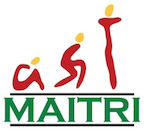Elder Abuse in the South Asian Community
By Zakia Afrin, Client Advocacy Manager
Excerpts from her Radio Interview with Shailaja Dixit at Radio Zindagi aired 05/27/19
What we must remember
Elder Abuse is against the Law and physicians, social workers, care givers and clergy along with few other professionals are mandated reporters of suspected elder abuse. Elder abuse has all the elements that we see in domestic violence situations, – physical abuse, sexual abuse, financial abuse, emotional abuse, of course, and in the immigrant community, in a very pervasive way, immigration related abuse. Generally, this is underreported and specially within immigrant communities of color, this issue is not discussed enough to find a pattern and offer resources to intervene.
Elder Abuse in South Asian Community
In the Bay area there are organizations dealing with this issue that focus mostly on financial scams and nursing home related abuse. In the South Asian community, the pattern is found to be different. From what we have seen at Maitri – a parent is brought from back home, her visa is being sponsored, getting a green card and then being used for all manual household work, and sometimes being used for childcare. Isolation, neglect in health care and pressure of household work may become burdensome for an elder. There may be cultural arguments favoring an elder spending time with children, however, when it becomes an obligation rather than a choice abuse is likely occur. Another pattern we have seen is that a partner is sponsoring his/her parents and bringing them here without even consulting the other spouse. So then you see this complex situation where one partner is not ready to accept the fact that there are two other older members in the household. The traditional Joint family structure faces challenges when spouses do not agree on its terms. These issues may not be understood and dealt with in the main stream organizations working to end elder abuse.
Intervene or not to Intervene?
As a Domestic Violence advocate, I always caution people about confronting the abusers without consulting the victim/survivor. Unless there is a life threatening event happening in front of you, please do not try to confront the abuser, you can be a bystander, try to help the person who is being attacked or being victimized at that moment. And then find a safe spot or a safe place to talk to that person, ask them how they want to be helped. Now we have to understand that elder abuse by children or family members are very sensitive issue. We need to give them that space and talk to them about their safety. We ask them if they want to do something about it, what that may look like. I always encourage people to let them talk to professionals who are handling this, like Maitri, for example. We can talk to them, they can ask us any question; what happens if I call the police, how can I be protected, what happens if I share my story with a doctor, therapist or a social worker – Understanding all of these issues, they can make a choice for themselves. Many may not speak English but that doesn’t mean they are not smart. They are experts of their own lives, they know what decision they need to make. So we have to give that space, definitely give resources that you have, ask them to talk to somebody. There (is) Institute of Ageing that’s based in San Francisco, if somebody is interested in speaking with mainstream, they have a prevention program, they can call and talk to them. They can call Maitri if they want to talk about some options and get some resources in their own communities.
What do we do now?
The Statistics on elder abuse are not very much available. That makes it more likely that elder abuse within South Asian population is going unnoticed. I think it can be related to domestic violence. Prior to Maitri or Narika or other culturally specific organizations’ existence, we didn’t think domestic violence existed in our community, we could just brush it off. Its only when you and me and more people like us came together and said hey this is the problem, these are the numbers we are serving every year, we acknowledge this problem. For elder abuse also, we understand it exists because within our domestic violence context, we get calls from elders, however, we don’t have the statistics to pinpoint. I think that is where we need to start. First is we need to do research, we need to do fact finding from our elders, that what is happening, how prevalent is it, and how are these things happening, how are they coping with it. That’s the research part. And then at the state level, we can ask for more funding for Research and Intervention. Now again, through the state, whatever prevention and intervention services are available for elder abuse in general, we can ask them to become culturally responsive, so that we can include the population that we are leaving behind. They can include language access for all of those services, then hopefully, we can get a better intervention strategy.
My message to the Community
Conversation is the Key. We must begin conversation about elders in the South Asian community, hear from them and understand the challenges in addressing their concerns. immigration can be a traumatic experience for everybody. so before you bring in either your spouse or your parents, give them a real picture and what to expect, how difficult or easier their lives may become and let them make their choice if they want to be in this situation. If the joint family structure works for us, wonderful, but if it does not work for us we have to recognize it and we have to figure out what is the best way to co-exist with our elders. Abuse is not acceptable.

